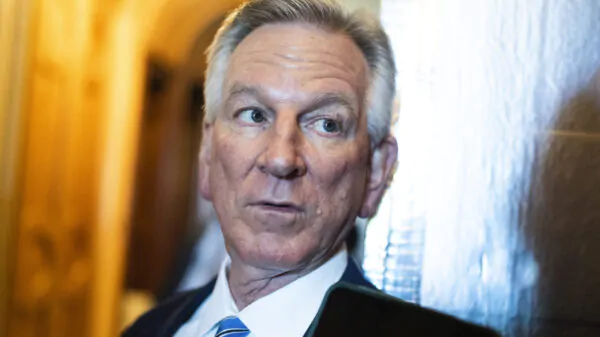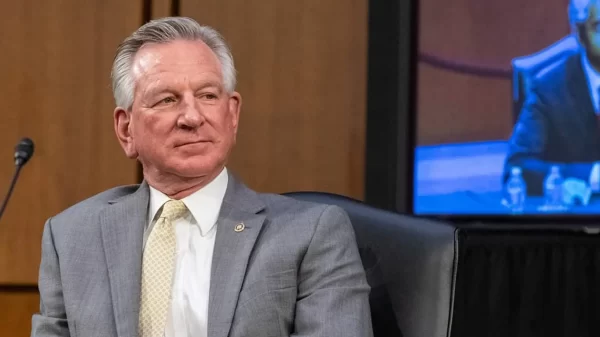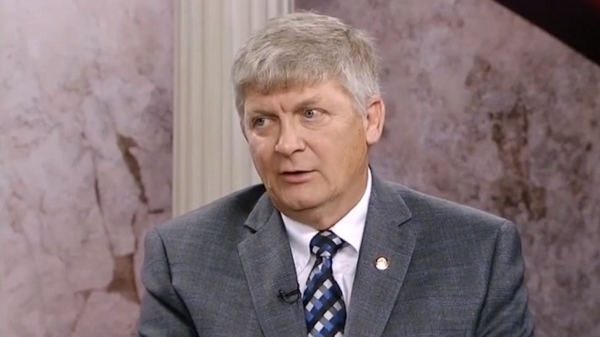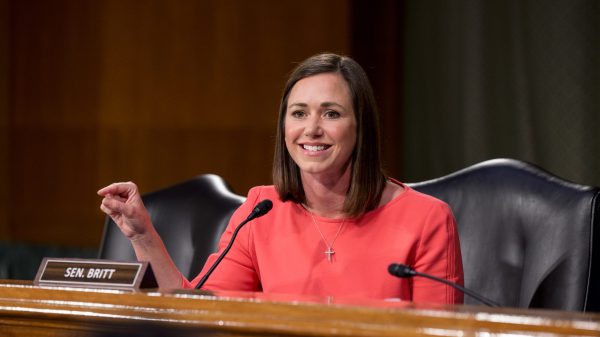Congresswoman Terri Sewell, D-Selma, called on the state of Alabama to expand the Medicaid program on Tuesday.
Sewell made the remarks during a hearing of the House Ways & Means Committee. Sewell drew on her visit to Sumter County’s Hill Hospital last week to highlight the dire state of Alabama’s rural hospitals and the need to expand Medicaid.
“Last week, I had the fortune of visiting one of my rural hospitals in Sumter County, Alabama,” Sewell said. “Over 90 percent of this hospital’s patients are either on Medicaid or Medicare or are uninsured – 90 percent. Our state Medicaid program reimburses these hospitals at about 10 percent of emergency room costs in some cases, and Medicare doesn’t reimburse higher than 67 percent of costs. First and foremost, our states need to expand Medicaid. We know that nearly 90 percent of rural hospital closures have occurred in states that had not expanded Medicaid before the closure.”
“It’s very important that we put politics aside and help hospitals and citizens in states that have been left behind by their state leaders’ decisions not to expand Medicaid,” Sewell continued. “At the same time, we cannot expect our rural hospitals in non-expansion states to survive if the Medicare program continues reimbursing for hospital services at bare-bone levels. … I look forward to working with my colleagues on this committee, specifically Congressmen Ron Kind, Adrian Smith, Jodey Arrington and others to modernize the way we reimburse rural hospitals and health care providers.”
Sewell’s office said Medicaid expansion would allow Alabamians making up to $23,336 per year for a household of two, or 138 percent of the poverty level, to receive health care they can afford. Some 320,000 Alabamians would benefit, and, by extension, hospitals would see increased reimbursements from an increased insurance population. Because many of those who would be impacted by Medicaid expansion live in rural parts of the state, rural hospitals especially stand to benefit from expansion.
To incentivize Gov. Kay Ivey and the Alabama Legislature to expand the program, Sewell introduced legislation earlier this year to allow states that expand Medicaid to receive a 100 percent federal match for the first three years, 95 percent for the fourth year, 94 percent for the fifth year, 93 percent for the sixth year and 90 percent for each year thereafter, regardless of when they decide to expand. Under current law, states that have not yet expanded Medicaid have missed the window to receive a full federal match for any amount of time.
Sewell’s legislation has not passed the House of Representatives yet, and it is doubtful that it would pass in the Republican controlled U.S. Senate and be signed by President Donald Trump.
Former Gov. Robert Bentley’s decision not to expand Medicaid is saving Alabama taxpayers an estimated $176 million a year, now that the initial federal match would have run out. Congress has transferred an estimated $110 million a year to the state’s long beleaguered state general fund budget in Children’s Health Insurance Program costs beginning in the 2021 budget, with the state absorbing an estimated $48 million hit in the 2020 budget.
The federal courts and the Justice Department are also demanding that the state address the long neglected overcrowded and understaffed Alabama Corrections system. Properly staffing the prisons, providing more mental health services, better healthcare and the cost of building new prisons could cost the SGF an additional $100 to $130 million a year going forward beginning in 2021. There are still severe mental health needs that have not been properly addressed by the state.
Given the Alabama Constitution’s bizarre system of accounting and earmarking, it is almost impossible for legislators to transfer funds from the education trust fund — where all the income tax dollars are earmarked — to the $2.1 billion SGF where Medicaid, prisons, mental health, the courts and 70 other state agencies are funded. An effort to create a state lottery that would have added as much as $166 million to the SGF was defeated in this session due to some legislators’ insistence that at least half of the money go to education, even though the ETF’s funds are at an all time high.
Some legislators have told the Alabama Political Reporter that expanding Medicaid is not feasible, and even if the federal government picked up the first three years of the cost of expansion, that would only be kicking the can down the road.
The problem that rural hospitals face is that many of the small rural counties are hemorrhaging population. Sumter County had a population of 17,131 in 1984, after peaking at 32,710 in 1900. Since then the population has plummeted to just 12,687, the smallest population for the county in Census records which go back to 1840 when 29,937 lived there. Sumter County has a tiny population and an average household income of just $21,663. Residents often have to travel to Meridian or Tuscaloosa to see a specialist.
Sewell is a member of the Ways & Means Subcommittee on Health and represents Alabama’s Seventh Congressional District.





















































